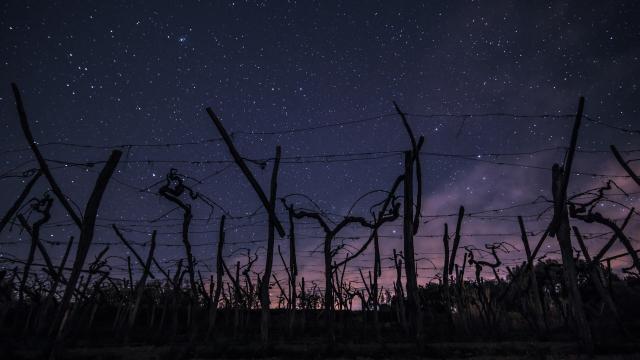At the end of 2019 a European start up sent a dozen bottles of wine to the International Space Station (ISS) to age for a year. The space wine has now safely returned to Earth and has been tasted for the first time.
The wine was sent to the ISS back in November 2019 by Space Cargo Unlimited — a Luxembourg company that specialises in testing how space environments impact on materials used on Earth.
Until now the wine itself was kept secret, but it has now been revealed to be 12 bottles of Petrus 2000.
The cheapest bottle available on Wine Searcher right now cost $5,912.
Space Cargo apparently chose those this vintage because of the ‘oenological criteria’. This included a wine that was predominantly one grape variety. For the Petrus 2000, that would be Merlot.
A control batch of the same wine was also aged on Earth at the same time. It was predicted at the time that the microgravity and space radiation would result in different chemical and physical reactions than the bottles ages on earth.
The space wine returns to Earth
The wine returned home in January via SpaceX’s Dragon cargo ship, making the ageing process around 14 months. It was then flown to the University of Bordeaux’s wine institute, the ISVV, to be analysed.
According to Decanter, a tasting was just held where twelve tasters were able to compared 30ml of the Earth and space wine batches.
‘The earth wine was exactly how you would expect it to taste,’ Decanter’s Jane Anson said.
According to Anson, the space wine tasted more evolved, by roughly two to three years.
“There were more floral aromatics [and] the tannins were a bit softer and more evolved,” she said,
However, she did point out that she only tasted from one bottle so is unable to comment of variation between bottles.

Professor Philippe Darriet, from the ISVV’s oenology research team, said “that despite the 14-month stay on the international space station, the ‘space wine’ was very well evaluated sensorially.”
He also noted that the tasters identified differences in the smell, taste and colour of the space wine but that these naturally varied from person to person.
The wine will now undergo chemical analysis to see if there are any variations on a more scientific level.
As part of the project 320 vine cans also sent to the ISS. This included 160 of Cabernet Sauvignon and 160 of Merlot.
According to Space Cargo Unlimited, they will now undergo genome sequencing to see if any DNA changes occurred while aboard the ISS.
